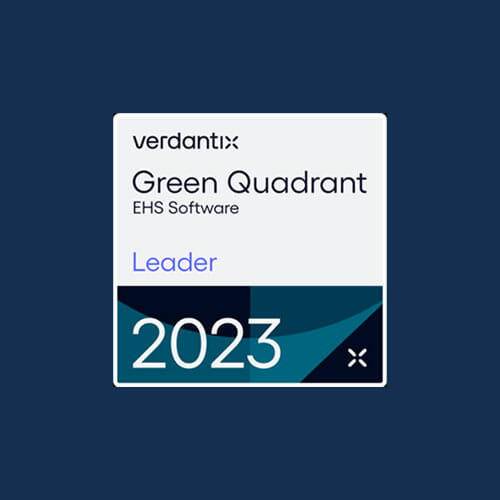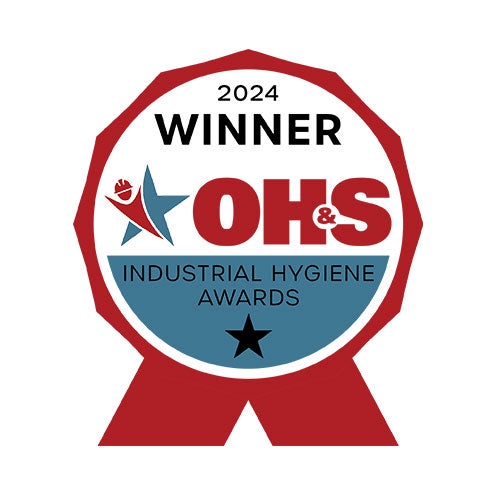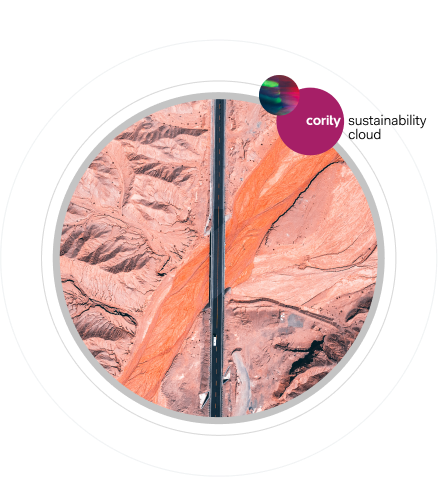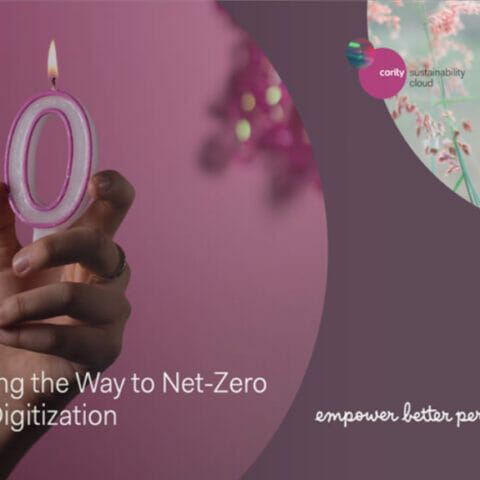- SolutionsOne platform. All your EHS & ESG needs.Designed to configure and scale, build your EHS & sustainability solution set within a single award-winning platform to empower everyone at every level across your organization to make responsible business decisions.Product CollectionsProtect your global workforce >>Enable better preventions >>Ensure accurate sustainability >>Transform compliance >>Better operational value >>Actionable performance insights >>Featured SolutionsProduct HighlightCority's Hygiene Essentials Solution
Wins Prestigious 2023 OH&S
Industrial Hygiene Award
- Solutions
- CorityOneTM
Achieve higher levels of operational and sustainable performance with our comprehensive SaaS platform.Learn More
Health CloudProtect your global workforce from risk and optimize compliance for improved worker health.
Safety CloudEnable better prediction and preventions to keep your workforce and workplace safe.
Sustainability CloudEnsure accurate and auditable sustainability and ESG data to create a greener future.
Environmental CloudTransform compliance and drive continuous improvement to meet your environmental goals.
Quality CloudReduce complexity and increase quality within your supply chain for better operational value.
Analytics CloudHarness your data and transform it into actionable insights for better organizational performance.
- Featured Solutions
Occupational Health Industrial Hygiene Investor ESG Management Audits & Inspections Air Emissions Management Customer Experience
- Product Highlight
Sustainability Performance Management Software - Helping you achieve your sustainability goals.
For sustainability, ESG, and EHS teams who need to streamline data collection, monitor sustainability impacts, meet reporting requirements, and increase stakeholder visibility. Learn More
- Who We Serve
Featured Category
Private Market Investing
Designed for private market investors, Cority's market-leading solutions empower responsible investment decisions at every step of the ESG journey.
- Who We Serve
- Resources
- Resource Center A valuable source for your continued learning, latest updates, and cross-industry thinking.Learn More
- Featured eBookPreventing SIFs with Digitization: Reduce Serious Injuries and Fatalities with Technology
- Featured BlogHow Cority’s EHS Product Roadmap Excels at Meeting Marketplace Needs
- Featured WebinarEfficiency unleashed: Transforming flu shot clinics with software technology
- Featured Resource
Cority Recognized as a Leading Provider for ESG Reporting and Data Management Software
Learn More

- About Us
Request a Demo Featured AwardFujitsu and Cority Win Climate Innovation Award for Scope 3 & Supply Chain Sustainability Collaboration
Featured AwardFujitsu and Cority Win Climate Innovation Award for Scope 3 & Supply Chain Sustainability Collaboration Community NewsNew Digital Badge Program Elevates Cority Software Users as Platform Experts
Community NewsNew Digital Badge Program Elevates Cority Software Users as Platform Experts
- Featured News
Cority Wins Exposure Assessment & Risk Management Categories in Prestigious 2024 OH&S Industrial Hygiene Award
Learn More


- Solutions
- Solutions
- CorityOneTM
- Health Cloud
- Safety Cloud
- Sustainability Cloud
- Environmental Cloud
- Quality Cloud
- Analytics Cloud
- Featured Solutions
- Occupational Health
- Industrial Hygiene
- Investor ESG Management
- Audits & Inspections
- Air Emissions Management
- Customer Experience
- Sustainability Performance Management Software – Helping you achieve your sustainability goals.
For sustainability, ESG, and EHS teams who need to streamline data collection, monitor sustainability impacts, meet reporting requirements, and increase stakeholder visibility.
- Who We Serve
- Who We Serve
- Resources
- About Us
- CorityOneTM
Achieve higher levels of operational and sustainable performance with our comprehensive SaaS platform.Learn More

Software Solutions for Responsible Business Management
In April 2021, Cority, a global leader in the EHS software market, acquired
WeSustain. You can read more about the acquisition…



Connect with Cority to explore software solutions for Sustainability, ESG, and the full suite of EHS programs
The WeSustain
Product Legacy
Flexible software solutions designed to support future-focused, responsible business management – solutions to simplify and streamline an organization’s sustainability processes.
Specifically tailored for enterprise, mid-sized companies, public sector organizations or associations, WeSustain provided better data quality and a new level of transparency to build greater trust and confidence,

The Integrated Cority
Sustainability Cloud
360 degree visibility paired with data you can trust and simplified reporting, Cority helps organizations ensure their data is accurate and auditable with robust sustainability and ESG solutions. Incorporating the strengths from WeSustain, the Sustainability Cloud now features the following solutions:
Explore ESG Content, Curated and Created by Practitioners
with Deep Industry Know-How
Field-Proven Enterprise Sustainability Management Needs Field-Proven Expertise
We’ve walked in your shoes and advised leadership from across the globe on driving sustainability and ESG programs forward while improving operational efficiencies and the bottom line. Here’s what we’re talking about:

WeSustain: A leader in innovative responsible business management
On April 30th, 2021, WeSustain was acquired by Cority software. Through this acquisition, the global enterpris EHS provider was able to complement it’s market-leading CorityOne solution with one of the world’s leading specialized software providers for ESG and corporate sustainability to support responsible business management.
WeSustain was formed in 2010 by four software and management professionals with an SAP background who wanted to build a company from the ground up to pursue a new business idea: to create software solutions designed to support responsible businesses and provide the kind of data collection and management capabilities they could rely on.
Driven by a desire to see what difference it would make if businesses, assisted by the right software solutions, could become incrementally more sustainable, WeSustain initially developed a solutions portfolio that covered the action areas at the core of sustainability management today – from materiality analysis and performance metrics to data collection and reporting.
About Acquisition-
2010
Formed
WeSustain founded near Buxtehude, Germany
-
2011
Launched
Enterprise Sustainability Management solution for Corporate Sustainability Management
-
2014
Milestone
First customer in Switzerland
-
2016
Launched
First solution for association in the textile industry, funded by German Ministry of Economics
-
2017
Launched
CR compass, an ESG tool for small companies, funded by German Ministry of Economics
-
2018
Milestone
First customer in Austria
-
2019
Launched
ESG Management solution for Financial ESG Management
-
2020
Milestone
First customer in Middle-East
-
2021
Acquisition
By Cority Software, headquartered in Toronto, Canada
-
2021
Milestone
First customer in ASIA
Stay Informed!
Sign up for EHS and ESG news and best practices. Get notified on upcoming webinars, exclusive events, and industry news.








